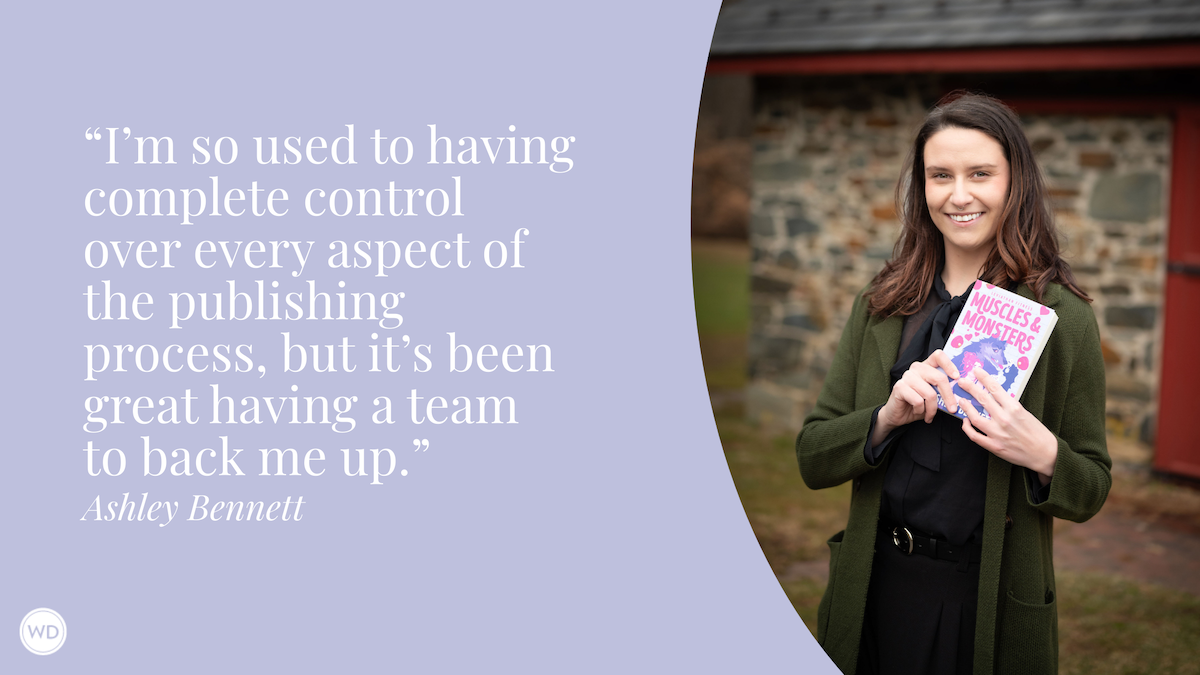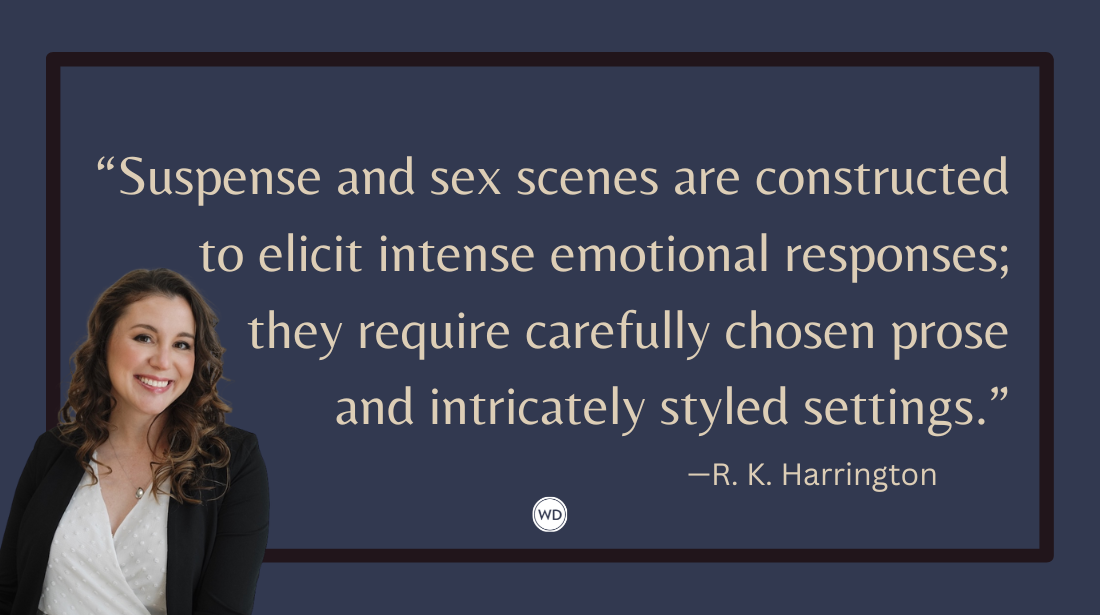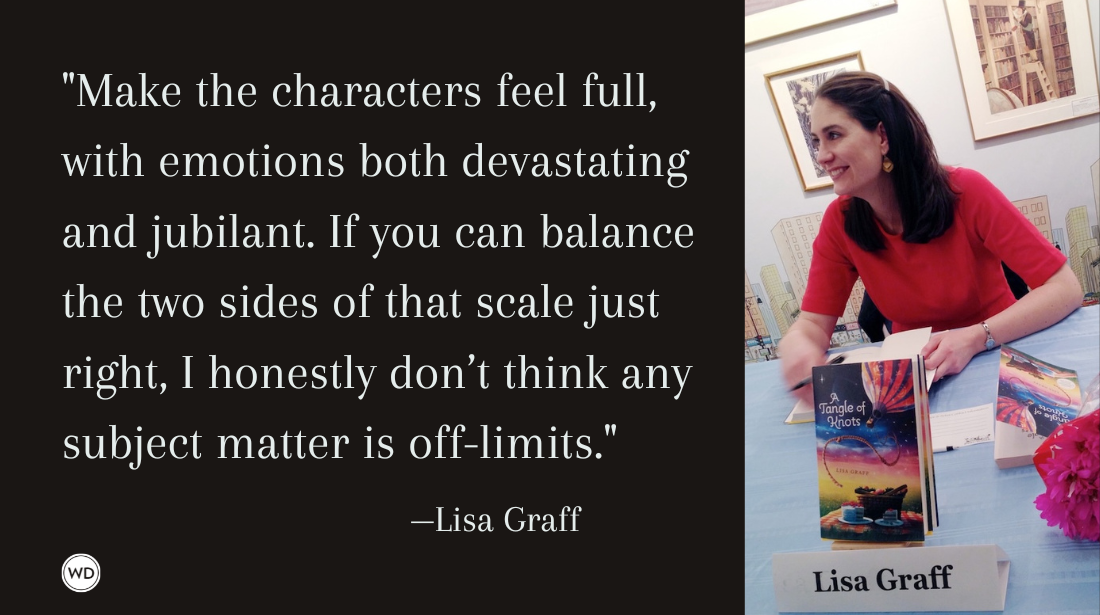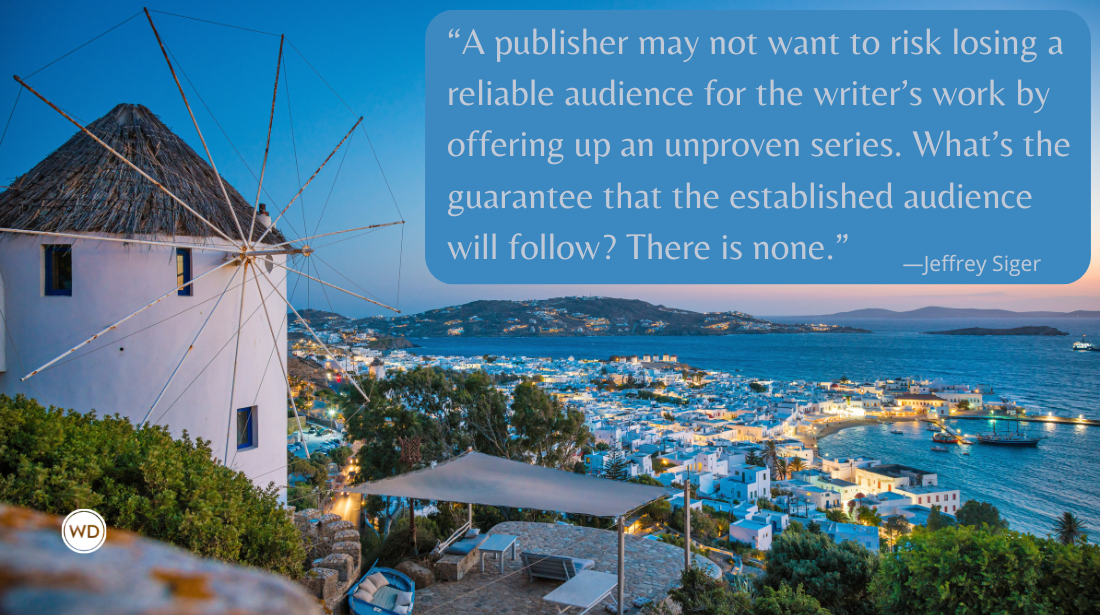Thomas Olde Heuvelt: I Want To Make You Sleep With the Lights On
In this interview, author Thomas Olde Heuvelt discusses the moral sacrifices on the pursuit of happiness that helped inspire his new horror novel, Darker Days.
Thomas Olde Heuvelt is an international bestselling author from The Netherlands and the first translated author to win a Hugo Award. His novels include the acclaimed HEX, Echo, and Oracle, and are published in over 25 countries around the world. Olde Heuvelt, whose last name means “Old Hill” in Dutch dialect, is also an avid guitar player and mountaineer. He lives in the south of France with his partner and pet lizard. Visit him at OldeHeuvelt.com, and follow him on Instagram.
In this interview, Thomas discusses the moral sacrifices on the pursuit of happiness that helped inspire his new horror novel, Darker Days, his hope for readers, and more.
Name: Thomas Olde Heuvelt. My last name “Olde Heuvelt” is old Dutch dialect and means “Old Hill.”
Literary agent: Jenny Savill at Andrew Nurnberg Associates
Book title: Darker Days
Publisher: Harper Books (U.S.), Bantam (U.K.)
Release date: October 23, 2025
Genre/category: Horror, mainstream
Previous titles: HEX, Echo, Oracle
Elevator pitch: In Lock Haven, a small town in Washington State, the residents of one gilded street seem happier, healthier and more prosperous than most. This charmed life comes at a cost, however, in the form of an annual human sacrifice presided over by a dapper, devilish entity known as the Accountant. Darker Days unfolds as a chilling exploration of the price we pay for our pursuit of happiness and how far we’re willing to go to protect those we love.
What prompted you to write this book?
For years, I wondered what originality I could bring to horror with my Dutch background. We have no literary tradition of horror. Dutch people are very practical, secular, not superstitious, and frankly, quite boring. But then I figured: I’ll embrace that. A few years back, I wrote a novel called HEX, in which the upstate New York townsfolk deal with the witch with stitched-up eyes in their midst in the most practical way: When she pops up in your bathroom, you just hang a towel over her face and take a shower. The Dutch way, in other words. This novel changed my life: People around the world dug its quirkiness and the book was sold to over 25 countries.
In Darker Days, I again embrace Dutch practicality, but in a darker, more existential way. I was intrigued by the sacrifices we all make in the pursuit of happiness. We fly to vacation while we know we’re destroying the planet. We want cheap clothes and food and gladly look away from child labor or animal rights. It’s a Faustian bargain we can’t escape, even when we generally want to do good. So, I figured: What if a group of people had made an actual deal with the devil, requiring them to make an annual human sacrifice? How would you practically deal with that? We don’t want to just pick someone at random and kill them. No, the Dutch way would be to look for people who want to die—the terminally ill, the depressed—and offer them a deal they can’t refuse. Ethically dicey, but I knew I found my novel.
How long did it take to go from idea to publication? And did the idea change during the process?
I wrote Darker Days in six months, but it was eight years in the making. I had the idea right after I finished HEX, but I didn’t want to repeat the small-town trope, and I felt I wasn’t ready yet to tackle its subtleties and sensitivities. So, I wrote two very different novels in between: Echo, my gothic homage and a possession-by-mountain narrative with a beautiful gay love story at its core; and Oracle, about a 17th century Dutch sailing ship that one morning pops up in a tulip field and makes enyone who boards it disappear. But Darker Days never left my mind, and now I felt ready. The core idea was still the same, but the deets develop as I go. I just plan ahead two or three chapters, and I have a sense of direction, but other than that, I discover the story as I go along. A bit scary, sometimes.
Were there any surprises in the writing process for this book?
The characters, always! They’re the heart of any story; they bring a story to life. And I love, love, love the characters in Darker Days. I chose to tell the story through the eyes of the members of one family: an American dad who’s a judge and struggles with the ethical consequences of the bargain; a Brazilian mom married into the pact; and two children who don’t know why their lives seem so perfect. The 10-year-old son is a jazz piano virtuoso and has a weird obsession with WWII, and the 15-year-old daughter is an Olympic hopeful with bipolar disorder. They are all generally good people, but their happiness and secrets turn against them during the Darker Days in November, creating all sorts of tensions. The family dynamic is the perfect vessel for a horror novel, because what binds them is love and the fear of losing that love. Throw in a bunch of horrible neighbors, each with their own twisted motivation, and you can imagine what a blast I had.
Were there any surprises or learning moments in the publishing process for this title?
One big surprise was realizing just how much the publishing world has changed in recent years when it comes to book length. Darker Days started out at 165,000 words in Dutch—almost 500 pages. Dutch tends to be wordier than English, so the translation brought it down to about 150,000, but then I ended up cutting another 15,000 words in edits. Then it was offered to U.S. publishers, and even though a lot of them loved the premise, the characters, the core themes; the word count was still problematic for many. Higher paper costs and distribution expenses probably pay a part there, but the main reason is the fact that we’re all suffering from diminishing attention spans. We’re constantly bombarded with impulses through our phones—social media, clickbaits, ads, reels, the state the world is in—and not only does it spawn FOMO, it spawns brain rot. I hear it everywhere: Readers have a harder time focusing on big books. Sure, Stephen King and Dan Brown still get away with it, but for everyone else, it’s becoming a tougher sell. My Taiwanese and Thai publishers for instance are considering splitting Darker Days into two volumes, which works out fine for this story since it spans two years, roughly the same in word count. But it’s a sign of the times, and it worries me.
What do you hope readers will get out of your book?
A scary ride, for starters. I want to make you sleep with the lights on. I want to make you laugh, I want to make you cry, but most of all, I want to make you scared shitless. Because the stories that touch our emotions are the stories that stick with us. Then, and only then, I want to make you think. Darker Days has everything in it to make you think, but it’s never my objective to tell you how to think, or to preach morals. Morals are boring. I just want to tell you a story.
If you could share one piece of advice with other writers, what would it be?
Aside from the clichés—read, write, all true—I’d say: Go look for what makes you uniquely you, and find a story only you could write. Just like I draw on my Dutch, practical background to put fresh spins on familiar horror themes, you’ll have to dig within yourself and find what defines you. It’s the sum of all your life’s experiences, heartaches, triumphs and traumas. Once you discover the stories only you can tell, half the work is done. If you’re interested in more from my studio, sign up for my newsletter at OldeHeuvelt.com. It’s not a commercial newsletter—I hate those—but just an intimate place to share my stories, musings, and writing advice directly with my readers and fellow writers.








